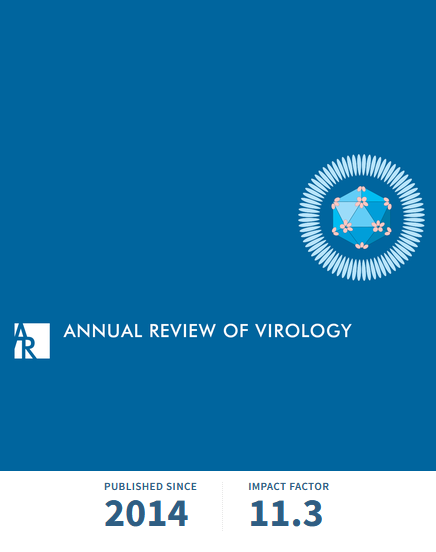Rift Valley Fever Virus Encephalitis: Viral and Host Determinants of Pathogenesis
IF 8.3
1区 医学
Q1 VIROLOGY
引用次数: 0
Abstract
Rift Valley fever virus (RVFV) is a mosquito-borne virus endemic to Africa and the Middle East. RVFV infection can cause encephalitis, which is associated with significant morbidity and mortality. Studies of RVFV encephalitis following percutaneous inoculation, as would occur following a mosquito bite, have historically been limited by a lack of consistent animal models. In this review, we describe new insights into the pathogenesis of RVFV and the opportunities provided by new mouse models. We underscore the need to consider viral strain and route of inoculation when interpreting data obtained using animal models. We discuss the trafficking of RVFV and the role of host genetics and immunity in modulating the pathogenesis of RVFV encephalitis. We also explore potential strategies to prevent and treat central nervous system disease caused by RVFV and discuss remaining knowledge gaps.裂谷热病毒脑炎:发病的病毒和宿主决定因素
裂谷热病毒(RVFV)是非洲和中东地区流行的一种蚊媒病毒。RVFV 感染可导致脑炎,发病率和死亡率都很高。由于缺乏一致的动物模型,有关经皮接种(如蚊虫叮咬后发生)后 RVFV 脑炎的研究一直受到限制。在这篇综述中,我们描述了对 RVFV 发病机制的新认识以及新的小鼠模型所提供的机会。我们强调,在解释使用动物模型获得的数据时,需要考虑病毒株和接种途径。我们讨论了 RVFV 的贩运以及宿主遗传和免疫在调节 RVFV 脑炎发病机制中的作用。我们还探讨了预防和治疗 RVFV 引起的中枢神经系统疾病的潜在策略,并讨论了尚存在的知识空白。
本文章由计算机程序翻译,如有差异,请以英文原文为准。
求助全文
约1分钟内获得全文
求助全文
来源期刊

Annual Review of Virology
VIROLOGY-
CiteScore
19.40
自引率
0.90%
发文量
28
期刊介绍:
The Annual Review of Virology serves as a conduit for disseminating thrilling advancements in our comprehension of viruses spanning animals, plants, bacteria, archaea, fungi, and protozoa. Its reviews illuminate novel concepts and trajectories in basic virology, elucidating viral disease mechanisms, exploring virus-host interactions, and scrutinizing cellular and immune responses to virus infection. These reviews underscore the exceptional capacity of viruses as potent probes for investigating cellular function.
 求助内容:
求助内容: 应助结果提醒方式:
应助结果提醒方式:


